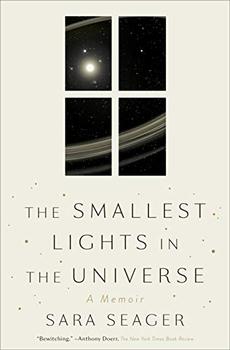Summary | Excerpt | Reading Guide | Reviews | Beyond the book | Read-Alikes | Genres & Themes | Author Bio

Winner of the 2016 BookBrowse Nonfiction Award
For readers of Atul Gawande, Andrew Solomon, and Anne Lamott, a profoundly moving, exquisitely observed memoir by a young neurosurgeon faced with a terminal cancer diagnosis who attempts to answer the question What makes a life worth living?
At the age of thirty-six, on the verge of completing a decade's worth of training as a neurosurgeon, Paul Kalanithi was diagnosed with stage IV lung cancer. One day he was a doctor treating the dying, and the next he was a patient struggling to live. And just like that, the future he and his wife had imagined evaporated. When Breath Becomes Air chronicles Kalanithi's transformation from a naïve medical student "possessed," as he wrote, "by the question of what, given that all organisms die, makes a virtuous and meaningful life" into a neurosurgeon at Stanford working in the brain, the most critical place for human identity, and finally into a patient and new father confronting his own mortality.
What makes life worth living in the face of death? What do you do when the future, no longer a ladder toward your goals in life, flattens out into a perpetual present? What does it mean to have a child, to nurture a new life as another fades away? These are some of the questions Kalanithi wrestles with in this profoundly moving, exquisitely observed memoir.
Paul Kalanithi died in March 2015, while working on this book, yet his words live on as a guide and a gift to us all. "I began to realize that coming face to face with my own mortality, in a sense, had changed nothing and everything," he wrote. "Seven words from Samuel Beckett began to repeat in my head: 'I can't go on. I'll go on.'" When Breath Becomes Air is an unforgettable, life-affirming reflection on the challenge of facing death and on the relationship between doctor and patient, from a brilliant writer who became both.
Underlying the bare biographical narrative is the author's incredible curiosity about the meaning of life. "Where did biology, morality, literature, and philosophy intersect?" he ponders. As the book progresses, it becomes more philosophical, searching for what it takes for people to find significance in their existence as it becomes apparent their time is finite...continued
Full Review
 (708 words)
(708 words)
(Reviewed by Kim Kovacs).
The late Paul Kalanithi, a non-smoking neurosurgeon, was diagnosed with squamous cell lung cancer. When Breath Becomes Air is his autobiography.
"Cancer" is a name given to a collection of diseases in which a set of cells in the body begin dividing abnormally and without stopping. Unlike their healthy counterparts, cancer cells lack the mechanism that tells them to stop multiplying, as well as the process known as programmed cell death (aka "apoptosis"), which gets rid of unneeded cells. These damaged cells eventually crowd out the good and may lead to death if the condition can't be treated.
Lung cancer is the second most common cancer in men (following prostate cancer) and women (after breast cancer). About 221,200 new cases of ...

If you liked When Breath Becomes Air, try these:

by Garth Greenwell
Published 2024
A medical crisis brings one man close to death―and to love, art, and beauty―in a profound and luminous novel by award-winning author Garth Greenwell.

The Smallest Lights in the Universe
by Sara Seager
Published 2021
In this luminous memoir, an MIT astrophysicist must reinvent herself in the wake of tragedy and discovers the power of connection on this planet, even as she searches our galaxy for another Earth.
Discovery consists of seeing what everybody has seen and thinking what nobody has thought.
Click Here to find out who said this, as well as discovering other famous literary quotes!